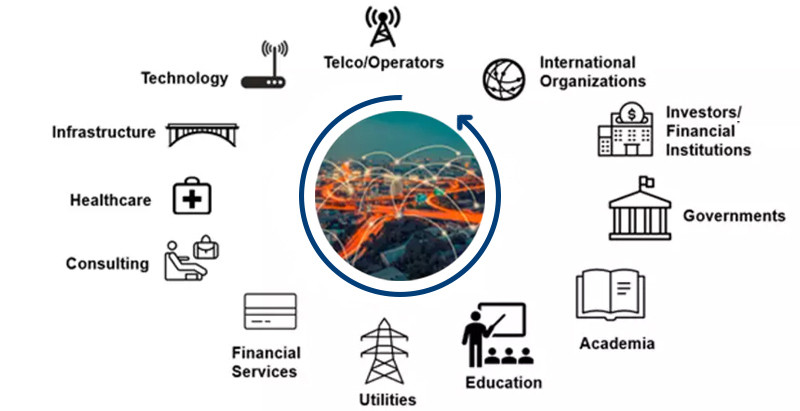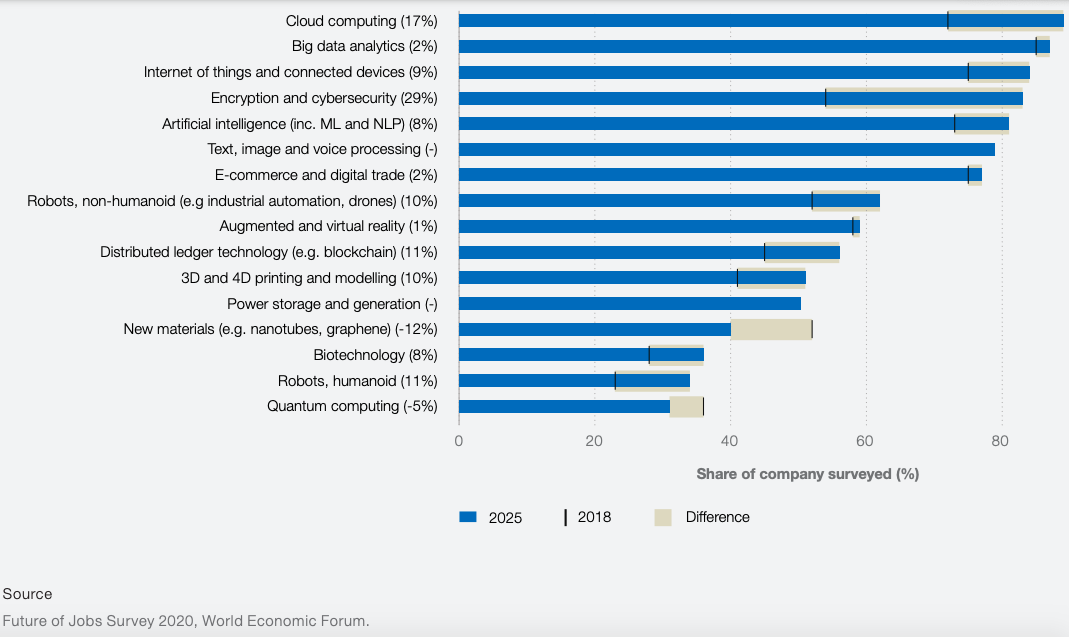- The hottest jobs for 2021 can all be done remotely, according to LinkedIn’s analysis of work trends in 15 countries.
- It predicts 150 million new technology jobs in the next five years.
- 84% of employers plan to expand remote working, according to a World Economic Forum report.
- The digital revolution means a career change for many.
If you’re in the market for a new role, and you have the right skills for a position in e-commerce, healthcare, or digital content, you’re in luck: they’re all on the list of LinkedIn’s predictions for the hottest jobs of 2021.
LinkedIn analyzed jobs trends in 15 countries around the world for its annual Jobs on the Rise report. A common theme was that almost all of the roles identified can be undertaken remotely – meaning that people with strong digital skills will have a significant advantage in the jobs market. Here are some other key trends.
At the click of a mouse
In the United Kingdom, the number of people buying groceries online has doubled since the country’s first COVID-19 lockdown, in March 2020 – contributing to a strong growth in e-commerce. From package handlers to supply chain specialists, the sector saw a 143% hiring increase. Lockdown also led to a spike in new media platforms such as podcasts, with listenership reaching audiences of over 15 million in 2020, creating opportunities for digital content freelancers.
Digital content producers are also in high demand in India, which has an 82% YouTube penetration rate, and in the United Arab Emirates, which has experienced 197% growth in the hiring of digital content freelancers over the past year.
With 70% of Southeast Asia now online, the region has seen a notable rise in digital services, with two new fields, HealthTech and EdTech, opening up a range of new opportunities as jobs that were once carried out in person shifting to digital. Pharmacists, medical technologists and information technology teachers will all be in demand this year.
COVID-19 has exposed digital inequities globally and exacerbated the digital divide. Nearly half of the world is still not online.
With more basic services moving online and the pandemic highlighting affordability challenges in wealthier nations, these deep digital gaps are exacerbating inequality and preventing the achievement of the UN Sustainable Development Goals (SDGs).
At The Davos Agenda, the World Economic Forum launched the EDISON Alliance, the first cross-sector alliance to accelerate digital inclusion and connect critical sectors of the economy.
 "lazy", :class=>"", :alt=>""}” use_picture=”true”>
"lazy", :class=>"", :alt=>""}” use_picture=”true”>
The EDISON Alliance will prioritize digital inclusion as the platform of platforms for partners with a common purpose for achieving the SDGs. Its vision is to ensure that every person can affordably participate in the digital economy.
Companies are invited to join the EDISON Alliance – read about how in our Impact Story.
Caring for the mind, body, and soul
It’s a similar story in Australia, where – as in many other countries – the pandemic has led to a particular need for mental health specialists. The healthcare and social assistance sector is Australia’s fastest-growing, employing more than 1.5 million people.
In the United States, alongside a call for more healthcare professionals of every stripe in the wake of the coronavirus pandemic, roles in areas such as artificial intelligence are growing rapidly.
LinkedIn predicts that there will be 150 million new technology jobs globally in the next five years, and data scientist and data engineer roles in the US are growing by 35% annually. With growing concern over racial and gender equity, 2020 also saw a 64% increase in the hiring of workplace diversity experts.
The focus on technology aligns with findings from LinkedIn in 2020 on the top 10 most in-demand jobs, all of which relied heavily on digital capabilities, including software development, data analytics, digital marketing and graphic design.
 "lazy", :class=>"", :alt=>"a chart showing the technologies likely to be adopted by 2025."}” use_picture=”true”>
"lazy", :class=>"", :alt=>"a chart showing the technologies likely to be adopted by 2025."}” use_picture=”true”>
Technologies likely to be adopted by 2025.
Image: Future of Jobs Report 2020, World Economic Forum
Digital transformation means new opportunity
It also dovetails with the World Economic Forum’s Future of Jobs Report 2020, which suggests that business leaders continue to focus on rapid digital transformation. According to the report, 84% of employers are overseeing a significant expansion of remote work, with a third also implementing new digital tools to enable collaboration and community building.
The Future of Jobs Report uncovered a four-fold increase in the number of people looking for online learning opportunities, a five-fold increase in employer provision of online learning, and a nine-fold increase in online learners accessing such programmes through government initiatives. Unemployed people have focused more on learning digital skills, such as data analysis and information technology.
Remote working will revolutionize the labour market, according to LinkedIn – democratizing opportunity for employees who may not be based in major urban hubs and opening up access to fresh talent for employers.
The shift is also enabling a career change for many – from sales to social media, research to medical writing, and entrepreneur to life coach.
